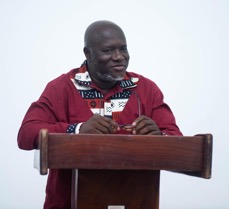
Madi Jobarteh, who made these remarks in a recent interview with The Point newspaper, said foreign aid has led many African governments to neglect their responsibilities, knowing that external donors will step in to fill the gaps.
This dependency mentality, he argues, discourages self-reliance and allows corruption and mismanagement to thrive.
“Aid will never be enough and only serves to make one survive, not grow,” Jobarteh says. “So long as you depend on aid, you will always be in severe need, which will never be satisfied by the donor.”
He contends that aid dependency erodes governance by making leaders complacent and citizens disengaged from holding their governments accountable. Instead of demanding better governance, people focus on donor-funded programs delivered through civil society organisations (CSOs), further weakening state institutions.
While Jobarteh’s concerns about aid dependency are valid, he agrees history demonstrates that aid, when effectively managed, has contributed to national development. After World War II, the United States’ Marshall Plan helped rebuild Europe, proving that strategic foreign assistance can be transformative.
Similarly, countries like Singapore and South Korea once relied on international aid but successfully transitioned into economic powerhouses through strong governance, human capital investment, and sound economic policies, he said. The key difference, however, lies in how these nations used aid - to strengthen institutions and build sustainable economies rather than remain dependent on external assistance.
Jobarteh also criticizes how foreign companies exploit Africa’s natural resources while contributing little to local economies. However, he points out that this is not solely due to aid dependency but rather weak regulatory frameworks and economic policies that fail to protect national interests.
He cited Botswana as an example of a country that has successfully managed its diamond industry, ensuring that its resources benefit the people. “African governments must renegotiate trade deals, enforce fair taxation policies, and ensure foreign investors contribute meaningfully to national development,” Jobarteh stressed.
He further criticizes civil society organisations (CSOs), arguing that they have become part of the corrupt system rather than a force for accountability. He believes many CSOs fail to effectively challenge governments, instead focusing on writing reports, organising conferences, and engaging in activities that do little to combat bad governance.
Similarly, he calls on the media to take a more investigative approach in exposing corruption and inefficiency. “The media should do more than report on ceremonial events and workshops,” Jobarteh said. “It must focus on investigative journalism to uncover abuse of power and hold leaders accountable.”





